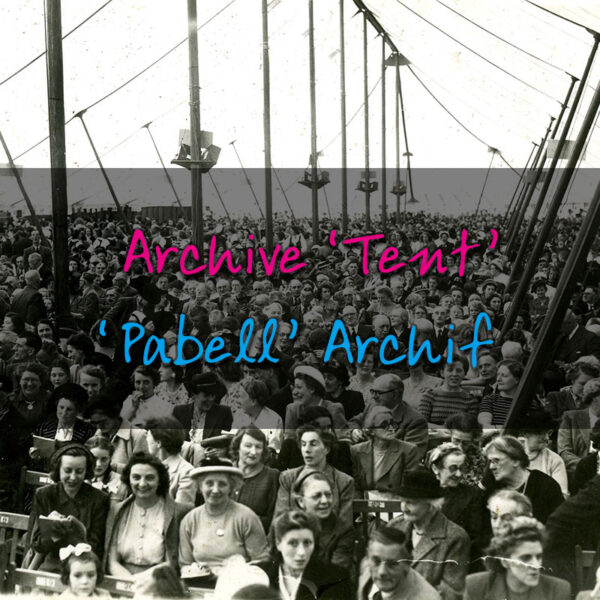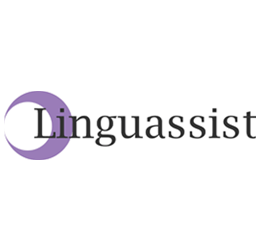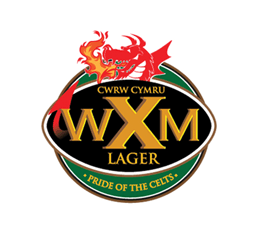
The eight minutes and twenty seconds of this film are a unique audiovisual record of the first festival in 1947. You’ll see and hear the winning choirs. You’ll share the excitement with the audience packed into the marquee, made from war surplus canvas with 6000 seats borrowed from schoolrooms, chapels and elsewhere round the area. The first President, Mr W. Clayton Russon, articulates the Eisteddfod’s concept of how an international musical competition can help promote better understanding and friendly relations between people of different nations. The stage presenters, borrowed in 1947 from the Welsh National Eisteddfod, are busy and down-to-earth, just as they are now.
As was common in the early years, most of the concerts featured the competitors, but celebrity evenings on the Saturday and Sunday included superstars Joan Hammond and the Hallé Orchestra conducted by John Barbarolli. Especially in the first decade the concerts brought to Llangollen world-leading exponents of classical music, opera and dance.
A surprise, both for the organisers and the audience, were concert performances by two Spanish dance troupes. They were on a tour of Great Britain, organised by the Esperanto Society. They so enthralled the festival that in 1948 folk dance and folk song competitions were introduced, and quickly became the main attraction. Looking at the dances on the newsreel you can see why there were stories of the need for emergency measures to prop up the stage.
One of the mysteries about 1947 is why, in the “Land of Song”, there were no Welsh male voice choirs among the competitors. After all, three men’s choirs from England turned up, and so did six Welsh ladies choirs. Many explanations have been proposed over the years: from fear of having their quality exposed; costs of doing both the National and International Eisteddfodau; active discouragement by the National Eisteddfod, whose concerns about the lusty upstart festival are documented in archived correspondence. Best to leave all that to the conspiracy theorists, and instead celebrate the famous Froncysyllte Male Voice Choir, founded in 1948 to rectify the omission.
In 1947 the International Eisteddfod was very much a creation of the Llangollen community. Many heroes made enormous contributions along the paths from the glimmerings of the initial idea in 1943 to the international groups arriving in Llangollen in June 1947, but it was the leadership of the Llangollen Urban District Council which in May 1946 crystallised the event. From the outset there was an ambition to be independent. The British Council’s help in finding groups in Europe was welcomed, but their offer of financial support was declined: the first Eisteddfod was funded by local subscriptions. Before the end of the five days the local organisers had publicly committed to holding another festival in Llangollen in 1948, despite some loudly expressed opinions that it should move around Wales like the National. Since 1947, a quality prized in the volunteers has been fierce loyalty to the idea of holding an annual event in Llangollen.
The 1947 organisers approached several newsreel companies to cover the Eisteddfod. Movietone won out because they were best able to cope with the limited power supplies available on the Llangollen Recreation Field.
Click Here to see the film on the AP Archive (The Associated Press),
In the film, in sequence:
- Females Choirs singing Benjamin Britten’s “This Little Babe”
- Femina Female Choir, Amsterdam
- Grupo Musicale Feminino, Porto (famous for travelling to Llangollen in a red and yellow bus)
- Penarth Ladies Choral Society
- Hungarian Men Workers Choir singing “Hey Nonny No” for which they won competition
- Spanish Dancers performing their traditional dance “Fandango Sequidillas”
- Amsterdamsch Kamerkoor singing “Die Winter is Verganghen”
- Belfast Choral Union Mixed Choir singing “Quick, we have but a second”
- Madrigalkoren I Kalmar singing Folk Song “Gottland” (thIs Swedish group was the first actually to arrive in Llangollen)
- Sale & District Musical Society Mixed Choir singing “Early One Morning”, with their conductor receiving trophy
Chris
Chris Adams
Archives Committee








